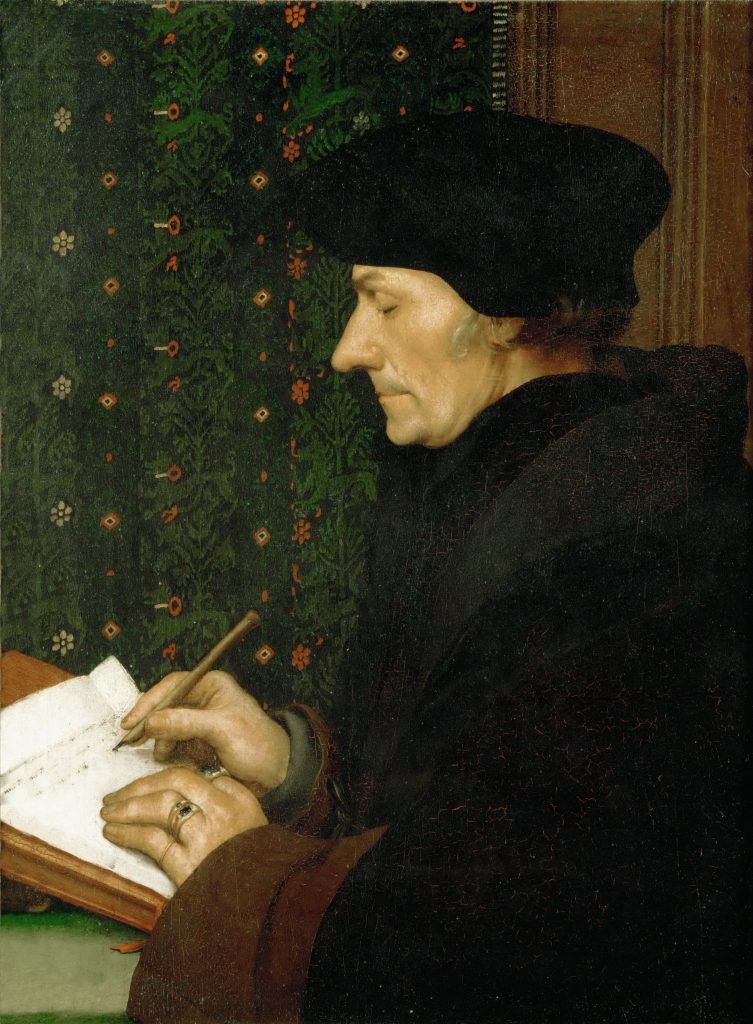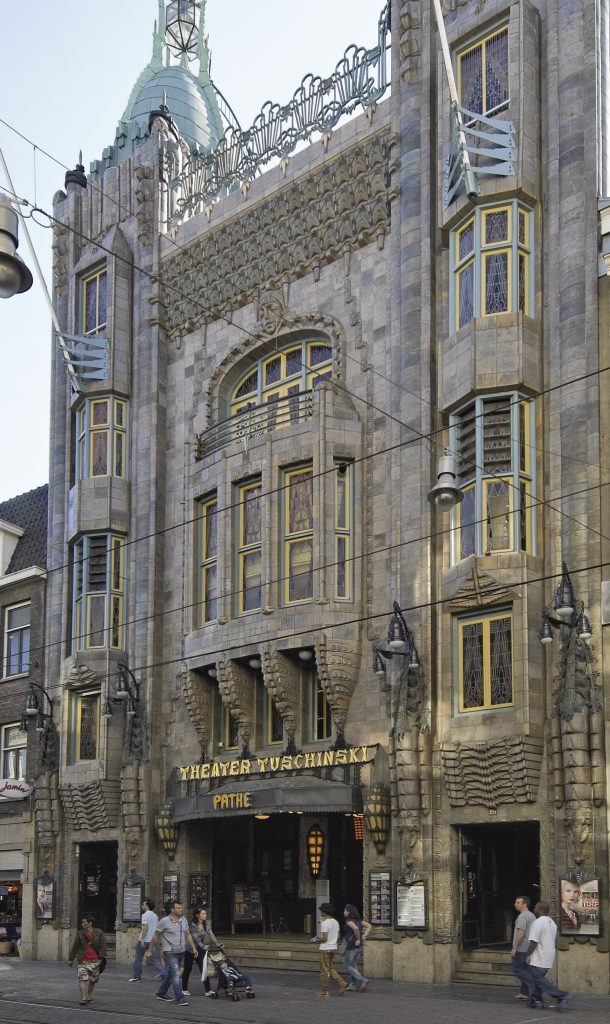Desiderius Erasmus of Rotterdam (1467/69-1536), the most famous and influential humanist of his age, maintained friendly relations with numerous Poles. He dedicated his works to Poles, was visited, read, printed and translated by Poles, and Poles had pictures of him hanging in their homes. Erasmus’s writings had a profound impact on the development of the Polish Reformation. “Polonia mea est”: “Poland is mine” or “Poland is favourable to me”, Erasmus famously stated in 1524. His Polish contacts included King Zygmunt I the Old, grand marshal Piotr Kmita Sobieński, archbishop and author Andrzej Krzycki (Andreas Cricius), and bishop and poet Jan Dantyszek (Johannes Dantiscus). One of Erasmus’s closest Polish friends was the reformed humanist Jan Łaski (Johannes a Lasco), to whom Erasmus even sold his library. More information about this story, and about the fate of Erasmus’s books, can be found here.
This portrait was made by Hans Holbein. It hangs in the Louvre in Paris:

*I originally wrote this post for the social media outlets of the Dutch Embassy in Poland. This was post no. 11.
